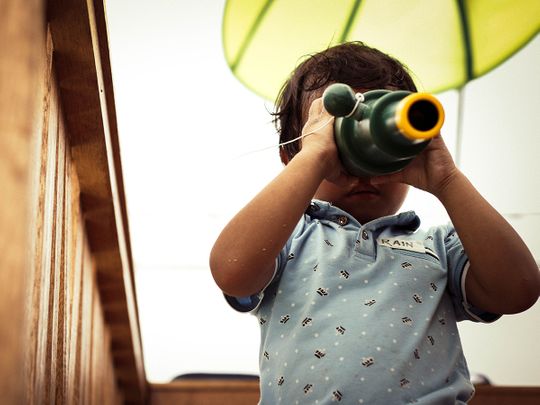
As we grow up, do we unlearn how to be at our most creative?
Click start to play today’s Spell It, where we are curious enough to take a “peek” at the science behind the elusive traits of curiosity and creativity.
In 1968, US space agency National Aeronautics and Space Administration (Nasa) had a new mission: they wanted to hire highly creative people. So, they roped in Dr George Land, a creative performance researcher, and Beth Jarman, a business and education leader, to come up with a test that would accurately measure creative potential. The pair put their heads together and created a test that successfully measured divergent thinking – the ability to see a problem, understand what’s going wrong, and come up with multiple solutions.
Even today, that test is considered to be a cornerstone of research around curiosity. At the time, though, Dr Land wanted to use the test to understand the mechanics of curiosity, and so he decided to put forward the questions to 1,600 children, in a large-scale observation study. The same children answered the questions at age five, then at age 10 and then at 15.
The first time they took the test, 98 per cent achieved the highest possible score. Five years later, when they took the test again, only 30 per cent of the same children scored well on the test. And by the time they were in high school, at age 15, only 12 per cent of the children did well.
In adults, the results were even more depressing. In a sample of 280,000 adults, less than two per cent could be defined as creative, based on their answers.
So, what’s happening? Are people unlearning their innate curiosity and creativity?
According to Ness Labs, an online platform that provides neuroscience-based content, scientific studies show that this dramatic decline could be caused by our increase in knowledge as we grow. When people begin to feel that there is no gap between what they know, and what they want to know, they just stop being curious.
Another theory has to do with education systems around the world, and whether they are doing enough to promote curiosity and creativity. According to a July 2017 report in US-based newspaper The Atlantic, stimulating classroom activities offer “novelty, surprise and complexity” and give students greater autonomy. Allowing children to ask as many questions as they want, question assumptions and gain knowledge through revision also fosters curiosity, rather than subjecting them to stressful tests.
What do you think about this dramatic loss of curiosity as we grow? Play today’s Spell It and tell us at games@gulfnews.com.




